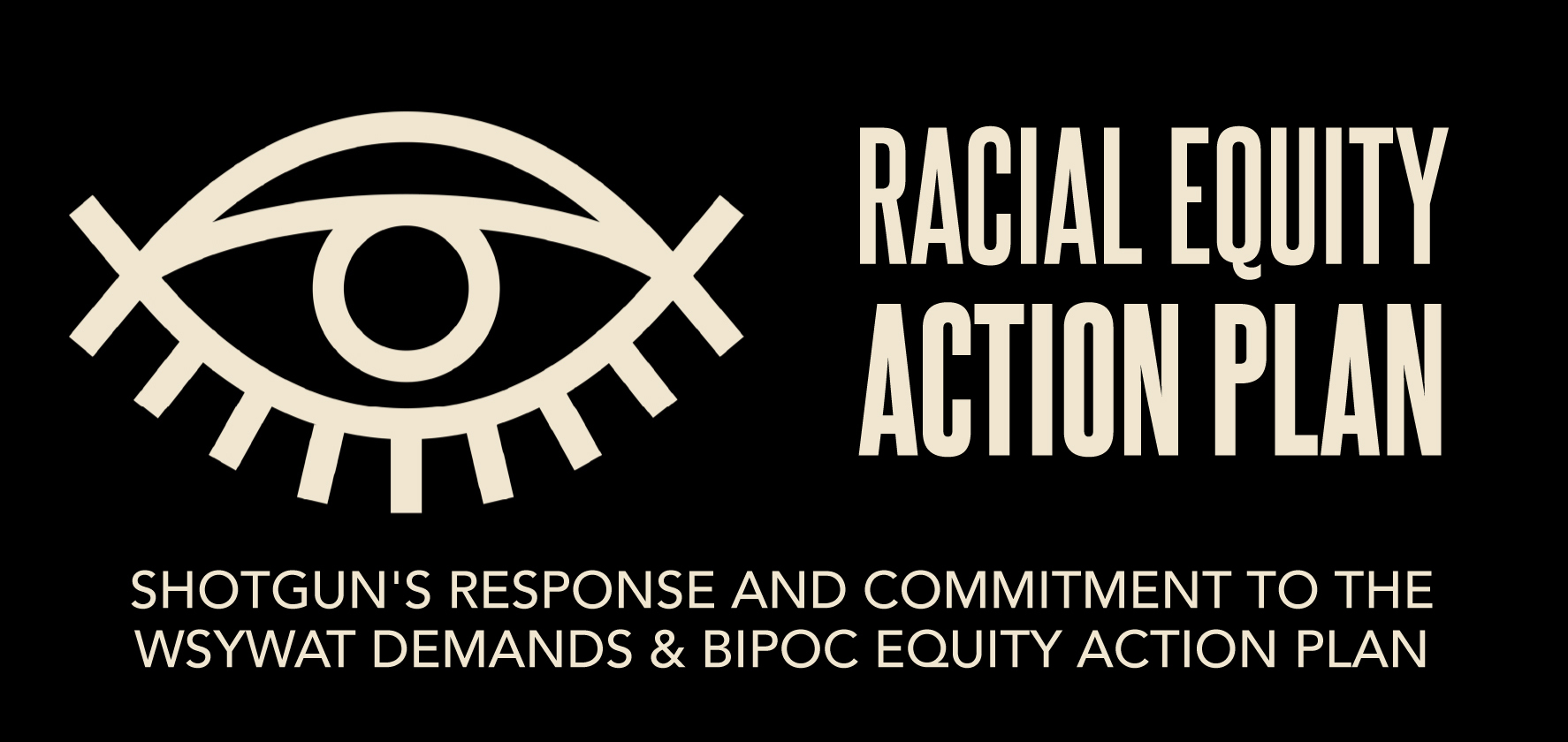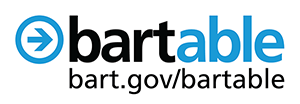Shotgun Action Plan: Racial Equity
May 18, 2023 In July of 2020, a cohort of BIPOC (Black, Indigenous, and People of Color) theater artists published an open letter to the national theater community entitled We See You White American Theatre (WSYWAT), which was paralleled by a local movement that became the BIPOC Equity Action Plan . In this letter, they called out the history of white privilege, systemic bias, and racism that are woven into the fabric of the American Theatre. Shortly thereafter, they published a comprehensive list of expected changes to every aspect of the theatre industry (marketing, fundraising, outreach, hiring/casting, board and work culture, etc). In acknowledgement that these changes need to happen, Shotgun’s staff began weekly meetings to discuss each item on the list, and how to implement them within our organization in a way that could make visible, long-lasting change.
The WSYWAT BIPOC leaders spent immeasurable energy creating a roadmap for our community, and more importantly, they have spent years enduring bias and injustice in a culture that prided itself on progressivism. These demands are a gift to the American Theatre. Our task is to employ the same rigor and tenacity we bring to art making to this revolution in our field.
The board, staff, and company of the Shotgun Players spent the fall and winter devising our action items and building them into our budget and five year strategic plan. This page of our website will keep a running list of actions that are in practice, and those that are in process. We say “in practice” because we recognize the work furthering inclusion and equity - like theatre training and development - is ongoing. We also believe that our ability to create meaningful, potent, theatrically magnificent work is intrinsically tied to the health and well-being of artists and audience members who are treated with dignity and respect. Thank you for joining this next chapter in our work. Check back to this page every three months for updates to our action plan.
Training
Our board, staff, and artistic company members are the ambassadors and first level of engagement with our wider community. They should model and uphold the highest standards of communication and behavior. To ensure that happens, we offer the following regular training sessions.
- Bystander/Deescalation - Board, staff, and artistic company will all receive training so they can respond to microaggressions in our work and public spaces. (In Practice)
- Sexual Harassment - All administrative and artistic employees receive training before beginning contractual work, and then semi-annually. (In practice)
- Non-Violent Communication - Board, staff, and company will receive NVC training to create a culture of clear and direct communication. (In practice)
- Anti-Bias - All employees receive this training before beginning work with our company. (In practice)
- Moderator - All post-show discussions will be led by people who know how to navigate challenging subject matter with audiences with varying levels of cultural competency. They will know how to call up/in microaggressions and moderate or stop conversations that could cause harm. (In practice)
Internal & External Oversight
In order to establish and maintain an environment of trust and safety, all employees and audience members must know there are multiple ways to offer feedback or seek help.
- Hiring & Work Culture Audit - In the summer of 2020, we hired an outside BIPOC-led HR firm to conduct an audit of our hiring and work culture with all artists and staff. Survey results were used to strengthen and evolve our anti-bias policies and procedures and feedback and incident reporting structures. We will continue to collect feedback through worker experience surveys at the end of each season and from post-production surveys throughout the year. (In practice)
- Feedback Structure - In 2020, we did a complete overhaul of our internal and external feedback and incident reporting structure, to create better pathways, more ways to report, and to offer greater clarity around the process, as well as enhanced confidentiality. We have established a “feedback@” form so anyone from our community may seek information and/or support. (In practice)
Hiring & Casting
New policies and procedures address the systemic bias and microaggressions that have happened in predominantly white institutions like our own.
- In line with our value to “shift the center,” our goal is to hire over 50% Black, Indigenous, and People of Color for seasonal artistic, technical, and stage management positions, as well as permanent administrative roles, until BIPOC workers’ representation at our company matches their percentage in the local Alameda County labor force. (In practice)
- Our board of directors continues to focus on recruiting diverse members who represent the community we serve. 54% of our current board members identify as BIPOC, among other diverse identities. (In practice)
- Include an anti-racist, work culture statement on all job descriptions, agreements and contracts for artists, administrators, and new board members. (In process)
- Our annual budget has expanded to include culturally competent hiring and casting support. (In practice)
Work Culture
Non-profit organizations have struggled for years to align their service-oriented purposes with using the top-down business models of for-profit organizations. Our new model is inspired by consensus-based decision making using a clearly defined proposal process, committee/task-force system of distributed leadership, improved communication practices, and a healthier work-life balance.
- All arts programming decisions that impact the wider organization will be evaluated after a full proposal has been approved through consensus. (In practice)
- Our rehearsal and tech process will shift from a six day work week to a five day work week, with the elimination of “10 out of 12” days. (In practice)
Community Engagement
- We will pay a Shuumi Land Tax each year to support the work done by Urban, Indigenous women of Sogorea Te' Land Trust to rematriate the land and support our community. (In practice)
- In 2021, we hired local Indigenous artists to design and paint a street-facing mural honoring the history of this land. We will honor other BIPOC communities that call this land home with other artistic and historical projects in our lobby, program, pre-show speeches, and on our website. (In process)
- We will continue to offer pay-what-you-can admission to the previews of each show. We added a $15 “Community Ticket” that will be available throughout the run of each show. (In practice)






